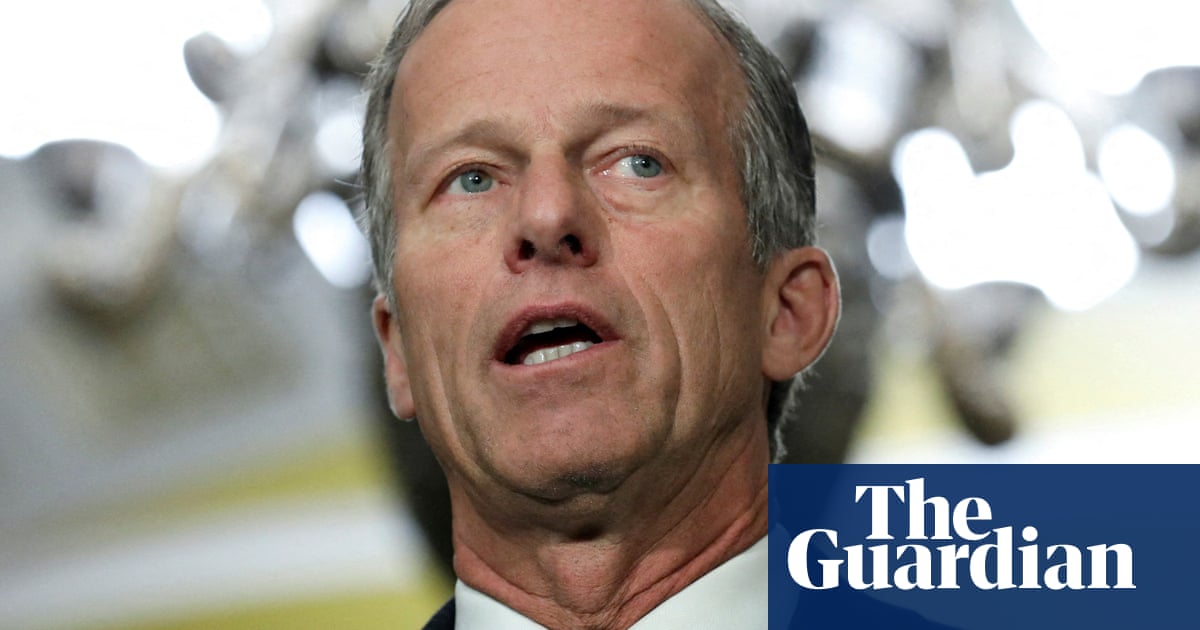Chinese students in the United States are questioning their future in the country after the state department announced last week that it would “aggressively” revoke visas for Chinese students and enhance scrutiny of future applications from China and Hong Kong.
Chinese students hoping to study at Harvard, the US’s oldest and wealthiest university, are under particular pressure after the Trump administration announced on Wednesday that it was banning the school from enrolling new foreign students. The presidential proclamation cited Harvard’s links with China as a particular cause for concern.
For Jerry*, a 22-year-old applied mathematics student at the University of California, Los Angeles, the uncertainty started last month, when the Trump administration suddenly halted Harvard University’s ability to enrol any international students.
Jerry has a place on a health data science masters programme at Harvard, which is due to start in the autumn. The US government’s attempt to ban Harvard from accepting international students appears to have been blocked, at least temporarily, by the courts. But Trump’s announcement on Wednesday invokes a different legal authority.
Marco Rubio, the secretary of state, has announced that the authorities will be targeting Chinese students specifically, nationwide.
It is “total discrimination,” Jerry said. “I don’t think anyone would consider that reason sufficient. That’s just pushing Chinese students to go elsewhere”.
Unsure about whether or not he will be able to enrol at Harvard, Jerry is considering taking up a place on a PhD programme at Oxford University in the UK. He said on Thursday that following Trump’s latest attack on Harvard, Oxford seems like an even more likely option.
Although he hopes to study at Harvard, Jerry feels lucky to have a back-up plan. “A lot of the people who accepted Harvard offers don’t have other options. So it must be much more anxious for them”.
Across the US, universities have been scrambling to find ways to reassure the hundreds of thousands of Chinese students on their campuses about their academic future.
In a memo sent to Chinese students at University of Oregon, the school described the state department’s announcement about revoking the visas for Chinese students as “vague” and said: “A revoked passport does not impact your legal status in the US because it is only an entry document used when entering the US”. However, the university warned that a revoked visa could lead to removal proceedings by the Immigration and Customs Enforcement agency (ICE).
Warning about being targeted by ICE have taken on a new gravity since the agency started targeting international students with the lawful right to remain in the country. They include Mahmoud Khalil, a Columbia University graduate and pro-Palestine activist who was detained despite holding a green card to reside in the US. Khalil is now fighting a deportation order.
Steven*, a 34-year-old Chinese PhD student at the University of Oregon, said that although he is not planning to apply for a new student visa soon, the prospect of an encounter with ICE concerned him. “Nowadays, even if you have a green card, you have legitimate status, you could get caught by ICE, because these guys are crazy”.
Steven has been in the US for a decade. In that time, the US has become a less attractive destination for Chinese students, he said, something he sees borne out in his part-time job helping Chinese students with their college applications. The numbers wanting to study in the US have declined, with people favouring countries in South-east Asia, such as Singapore, which are more culturally similar to China. The US is “just not that friendly” any more, Steven says.
The loss of top Chinese students in the US would be a blow to academic research, and to the funding for higher education institutions, experts say.
In the 2023-2024 academic year, there were about 277,400 Chinese students in the US, according to government statistics. That is a 25% drop compared to 2019-2020.
“By barring Chinese students and scholars from America, the Trump administration will strangle the pipeline of high-end talent into our universities, companies, and research institutes, sparking a serious deficit in talent and expertise that will damage American competitiveness,” said Denis Simon, non-resident fellow at the Quincy Institute, who specialises in science and technology policy in China.
The state department’s announcement last week specified that students with connections to the Chinese Communist party (CCP) or studying in “critical fields” would be included in the visa crackdown.
For years, the US has tried to root out Chinese espionage in academia, with concerns raised about CCP-backed programmes to recruit top talent in science and technology fields that are strategically important to China. But academics and campaigners say that this has bled over into racism, with all Chinese researchers or those of Chinese heritage being treated with suspicion.
Jerry, the mathematics student, said he has experienced discrimination in the US, but not on campus. But if Chinese researchers, staff and PhD students feel they have to leave the US because of an increasingly hostile environment, “it’s going to be a disaster for American universities,” he said.
*Names have been changed
Additional research by Lillian Yang

 German (DE)
German (DE)  English (US)
English (US)  Spanish (ES)
Spanish (ES)  French (FR)
French (FR)  Hindi (IN)
Hindi (IN)  Italian (IT)
Italian (IT)  Russian (RU)
Russian (RU)  3 weeks ago
3 weeks ago
























Comments